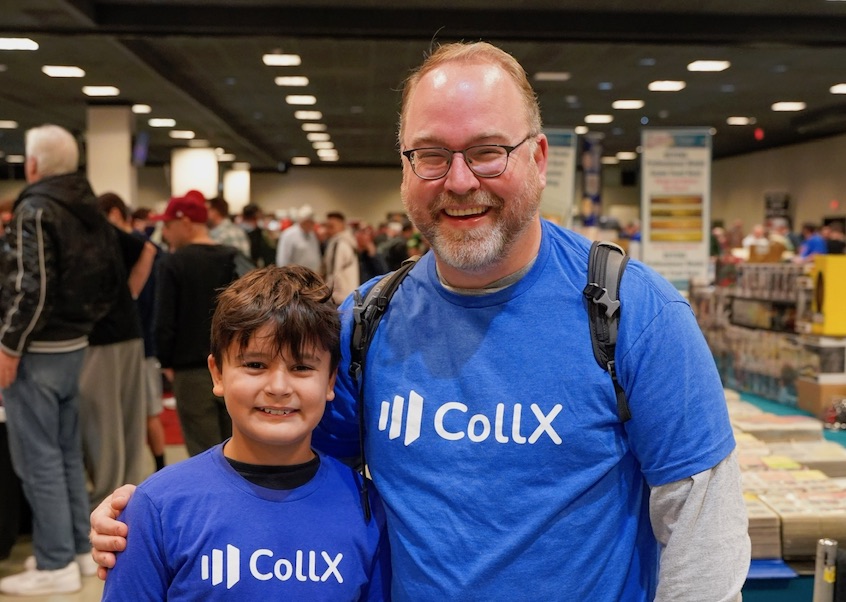For the first time in three years, founders from Technical.ly’s RealLIST Startups gathered in person in Center City to meet each other, talk shop and bond over a traumatic weekend following the Silicon Valley Bank collapse.
We gathered these execs at Morgan Lewis’ 17th and Market street offices a few weeks after they scored a spot on our 2023 RealLIST to hear about how they’re doing, what recent successes and failures they’ve experienced, and what it’s like to build a startup from Philadelphia.
We heard a range: Some felt deeply engrained in the Philly tech community, while others didn’t think the local identity was relevant to them. Some lauded the local resources they’ve found, while others said the meetup was their first startup-related event. Their industries and level of experience in the tech world also varied, but a few clear points came out of the diverse group.
The pros
BOSS.Tech cofounder Felicite Moorman is on her third company with cofounder Ryan Buchert, and said that although she’s a transplant, the business network in Philadelphia has been extremely welcoming. When she first headed to the East Coast early in her startup career, she tried both New York and Philadelphia, living in both for a week. She realized that the fundraising might be harder here in Philly, but the people sold her.
“In the Midwest, we have a saying — ‘Oh, bless your heart.'” Moorman said. “It’s not nice. But the ‘bless your hearts’ here are super real and that was undeniable.”

Philadelphians were also a great asset to Anthony Wehbe, founder of healthcare-at-home company Sena Health. He’s a born-and-bred Philly native, and spent his career as a physician here before building the 2020-founded company.
“I think the people here are very hardworking and genuine,” Wehbe said. “I actually used Philadelphia to recruit my CTO because he loved it here. For two years he has been coming here and now he’s moving his whole family here.”
Amy Felix, founder of TrackCE, is building a mobile app to allow doctors and nurses to keep their education and certification credentials in one place. She comes to the startup world after a tenured career in nursing, and said she found the community of people and startup-focused organizations to be supportive.
“I was just really surprised at the plethora of things for, if you just have an idea, how to get started,” she said.
Nicole Lipkin, who also comes to the startup world from healthcare with children-focused mental health platform HeyKiddo, said she feels the same. While she’s had a hard time cutting through red tape to get pilots started for her company, she’s been able to easily find help and mentorship here in Philly.
Ted Mann, a serial entrepreneur and the current CEO of collectibles app CollX, touted the orgs that cater to very early-stage companies, like Ben Franklin Technology Partners. But moving past that early stage as a startup can be tough here, he said. In the past and just recently with CollX’s seed round, Mann has had to raise from outside of Philadelphia.

The cons
Access to VC was one of the biggest struggles the founders said they were facing. While not all the founders in the room had done a significant round of fundraising yet, those who have expressed their frustrations with “the Philly hickey” — the idea (or mark) that being based in Philly might undersell or undervalue your company while you’re fundraising.
“You’ll get a decreased valuation because you’re in Philadelphia and people think they can get a bargain here,” Moorman said.
Wehbe, who raised a seed round early this year, said he did so from non-regional sources. He also has felt that although Philly is a healthcare-focused city, he’s struggled to get buy-in on pilot programs with local health systems. There’s a culture of “we don’t want to be the first” to try something new, he said.
“It’s kind of ironic, because isn’t Philadelphia known for the city of the first of everything?” quipped Nate Carabello, cofounder of vertigo-tracking app Vertige.
Yet as Technical.ly recently reported, more Philly companies are getting VC from outside investors than ever before. Tony Frick, cofounder of smart cutting board company BLOK, said the “underestimation” of the region might be playing into the growth potential and VC access founders are seeing. There’s been a lot of good change for the city in the startup community in the last decade, he said.
“As a lifelong Philadelphian, I don’t think we do enough to kind of celebrate our wins,” Frick said. “A lot has changed over the past 10 to 15 years in the city. We’ve gone from a net importer of innovation to a net exporter.”
_
What do you think? What are the pros and cons of starting a company in Philadelphia? Email philly@technical.ly to share your thoughts.







